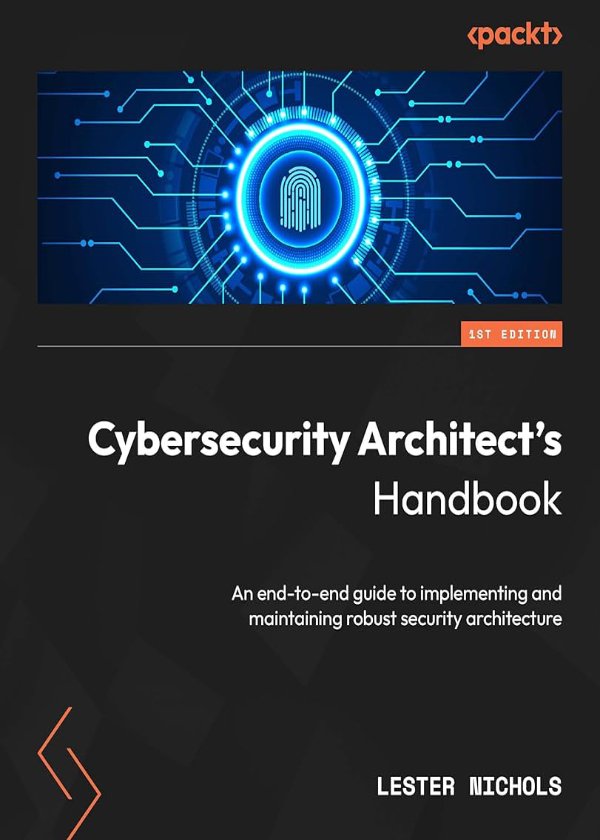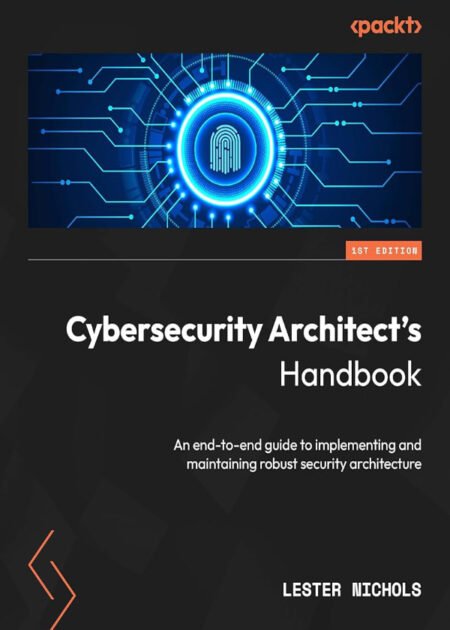Description
Discover the ins and outs of cybersecurity architecture with this handbook, designed to enhance your expertise in implementing and maintaining robust security structures for the ever-evolving digital landscape
Key Features
- Gain insights into the cybersecurity architect role and master key skills to excel in it
- Acquire a diverse skill set for becoming a cybersecurity architect through up-to-date, practical examples
- Discover valuable tips and best practices to launch your career in cybersecurity
- Purchase of the print or Kindle book includes a free PDF eBook
Book Description
Stepping into the role of a Cybersecurity Architect (CSA) is no mean feat, as it requires both upskilling and a fundamental shift in the way you view cybersecurity altogether. Cybersecurity Architect’s Handbook is an all-encompassing guide, introducing the essential skills for aspiring CSAs, outlining a path for cybersecurity engineers and newcomers to evolve into architects, and sharing best practices to enhance the skills of existing CSAs.
Following a brief introduction to the role and foundational concepts, this book will help you understand the day-to-day challenges faced by CSAs, supported by practical examples. You’ll gain insights into assessing and improving your organization’s security posture, concerning system, hardware, and software security. You’ll also get to grips with setting user and system policies and protocols through effective monitoring and enforcement, along with understanding countermeasures that protect the system from unauthorized access attempts.
To prepare you for the road ahead and augment your existing skills, the book provides invaluable tips and practices that will contribute to your success as a CSA. By the end of this book, you’ll be well-equipped to take up the CSA role and execute robust security solutions.
What you will learn
- Get to grips with the foundational concepts and basics of cybersecurity
- Understand cybersecurity architecture principles through scenario-based examples
- Navigate the certification landscape and understand key considerations for getting certified
- Implement zero-trust authentication with practical examples and best practices
- Find out how to choose commercial and open source tools
- Address architecture challenges, focusing on mitigating threats and organizational governance
Who this book is for
This book is for cybersecurity professionals looking to transition into a cybersecurity architect role. Solution architects interested in understanding the scope of the role and the necessary skills for success will also find this book useful.
Table of Contents
- Introduction to Cybersecurity
- Cybersecurity Foundation
- What Is a Cybersecurity Architect and What Are Their Responsibilities?
- Cybersecurity Architecture Principles, Design, and Analysis
- Threat, Risk, and Governance Considerations as an Architect
- Documentation as a Cybersecurity Architect – Valuable Resources and Guidance for a Cybersecurity Architect Role
- Entry-Level-to-Architect Roadmap
- The Certification Dilemma
- Decluttering the Toolset – Part 1
- Decluttering the Toolset – Part 2
- Best Practices
- Being Adaptable as a Cybersecurity Architect
- Architecture Considerations – Design, Development, and Other Security Strategies – Part 1
- Architecture Considerations – Design, Development, and Other Security Strategies – Part 2









Reviews
There are no reviews yet.